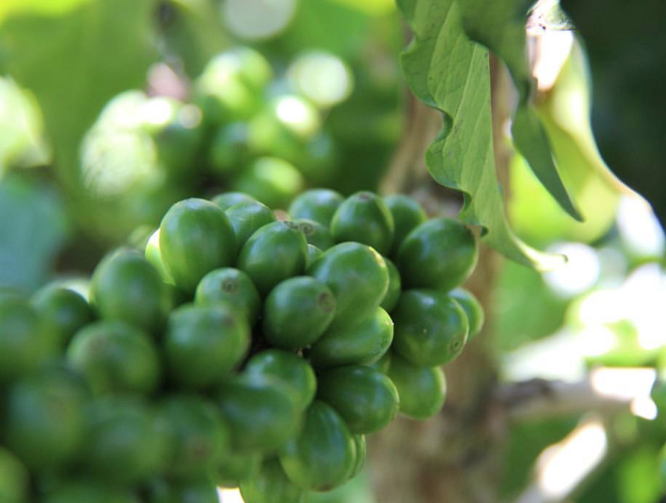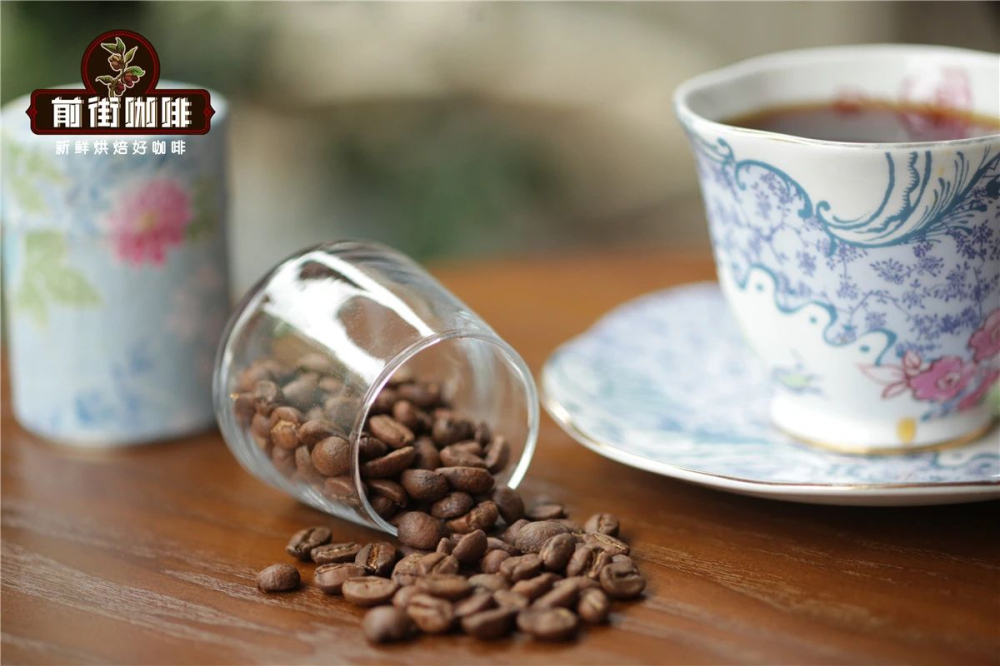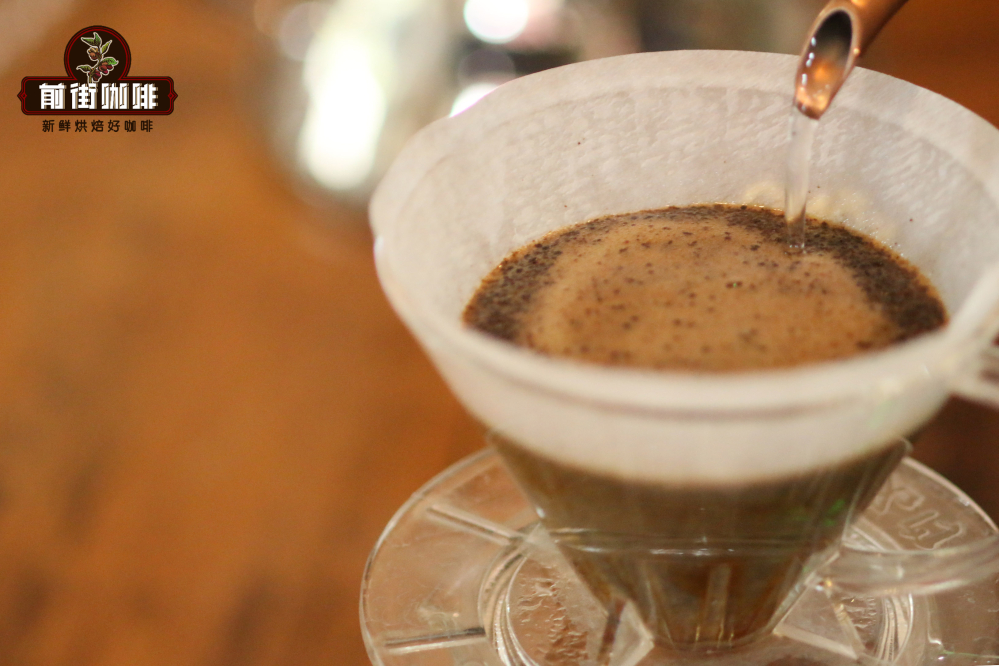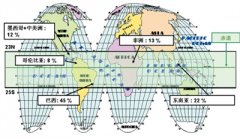What are Arabica coffee beans? 100% pure Arabica single boutique coffee beans efficacy, flavor and taste characteristics
Every day, when we buy coffee powder, instant coffee and other products, we will see the word "Arabica" on the package. Many friends begin to wonder what Arabica coffee is. What does 100% pure Arabica mean? The front street of this article will answer these questions for you.

What does 100% pure Arabica mean?
Coffee is a tropical cash crop, which is generally grown on the coffee belt between the Tropic of Cancer and the Tropic of Cancer. It requires relatively high and stable temperature, abundant annual rainfall and sunshine, and fertile soil with good drainage, which are all suitable conditions for planting coffee trees. The "coffee belt" covers more than 70 countries and regions in the world, among which more than 50 countries and regions have climate conditions that meet the needs of coffee bean growth, so they have become coffee producing countries. Like Brazil, Colombia, Ethiopia, Kenya, Indonesia. And Yunnan and Hainan are also on the coffee belt, each coffee producing area has a unique planting environment and microclimate to provide a variety of growth conditions for coffee trees, forming a unique flavor and taste.

Today, there are three main types of coffee beans in the world, only two of which are of real commercial value and are widely cultivated, including Coffea Arabica of small fruit coffee and Robusta of medium fruit coffee. In addition, there is a large fruit coffee (Coffea Liberica), the fruit is twice as large as small fruit coffee, because the flavor is generally relatively rare on the market.
As the main variety of coffee in the world, Arabica is very picky about its growing environment. Arabica species need to grow at a height of 800 to 2200 meters without frost, and the higher the altitude is, the significant temperature difference is formed, which delays the ripening of coffee fruit, which is more conducive to the accumulation of flavor substances and fuller aroma development. In addition to high altitude, Arabica also needs plenty of rainfall, sunshine, fluffy soil with good drainage, and fertile soil. In terms of cultivation, the region is very limited. Therefore, in order to produce high-quality coffee beans, growers need to invest more in management and higher labor costs.

For the "delicate" Arabica, Robusta has 2-4% caffeine, twice as much as Arabica. Caffeine, as a natural pesticide for plants, is protected from most insects, so it is easier to grow and cheaper, coupled with higher levels of amino acids and chlorogenic acid, with a mellow, lower bitterness, and a fishy smell when not handled well, so it is not so pleasant and is often used in deep baking Italian bean formulations or instant coffee.
In the past, people drank coffee only for a rich and mellow bitterness. with the promotion of the wave of fine coffee, people had higher requirements for the taste, taste, and quality of coffee, so Arabica beans with various aromas are more in line with the high needs of the current boutique coffee market than Robusta. In order to highlight the use of higher-quality coffee beans in their products, the manufacturer emphasized "100% pure Arabica" in the slogan. But now in the era of boutique coffee, the vast majority of the market is also using Arabica, so there is no need to explain at all. For example, dozens of hand-made coffee beans on the Qianjie bean list belong to Arabica varieties.

Does Arabica taste better?
The bitter taste we taste when we drink coffee mainly comes from the chlorogenic acid in coffee. Robusta has high levels of caffeine, amino acids and chlorogenic acid. So Robusta was born without the aroma of Arabica beans and replaced it with a fuller, lower bitterness and woody flavor.
Arabica's caffeine content is low, about 0.9%-1.4%, so it is more in line with the definition of health pursuit. Arabica beans contain 60% more fat than Robusta and twice as much sugar as Luodou. Coffee made from refined Arabica beans has a soft taste, obvious sweetness, clear acidity and rich layers, so it has naturally become the mainstream of the market.

Fine Arabica coffee beans recommended to beginners
There is a cost-effective rations bean series on the bean shelf in front street, featuring 7 excellent classic coffee producing areas, covering a number of representative producing areas, varieties and natural treatment methods. The so-called rations and beans, as the name implies, are varieties that have no burden to drink every day, and are very close to the people in price and flavor. Qianjie has selected a number of "facade representatives" so that people can identify the basic flavor of each major producing area. These include Yega Xuefei in Ethiopia, Vivetnango in Guatemala, Whelan in Colombia, half-sun Syrador in Brazil, Tara beads in Costa Rica, wet planer forest in Indonesia and Baoshan in Yunnan, China.

Each type of coffee beans are suitable for hand-flushing, cold extraction, French kettle and other methods of extraction, if you want to taste the most primitive aroma of coffee, Qianjie suggests the best form of black coffee. No matter which extraction method is used, Qianjie believes that the freshness of coffee beans is very important, and the aroma of coffee roasted for more than two months is likely to have been lost, and even excellent extraction methods are difficult to restore the aroma in the cup. In order to make you feel the best taste of coffee, Qianjie only delivers beans that are freshly baked within 5 days, and you can almost start brewing when you receive it.

Professional coffee knowledge exchange more coffee bean information please follow the coffee workshop (Wechat official account cafe_style)
For more boutique coffee beans, please add private Qianjie coffee on Wechat. WeChat account: qjcoffeex
Important Notice :
前街咖啡 FrontStreet Coffee has moved to new addredd:
FrontStreet Coffee Address: 315,Donghua East Road,GuangZhou
Tel:020 38364473
- Prev

Arabica coffee (what is Arabica?) What are Arabica coffee beans?
There are various Coffea species, but the two most common are Coffea Arabica and Coffea Canephora, commonly known as Arabica and Robusta. Arabica grows in the tropical and equatorial strips of America, Africa and Asia and it is the most de
- Next

Arabica grows Arabica coffee beans fine coffee beans
If Arabica coffee beans are favored by God, Robusta is the devil's booger, because of the market's love of Arabica coffee. Arabica can become the aristocrat of coffee beans and enjoy the highest honor as the most precious variety, depending on the high standards of its plant's growing environment. Allah
Related
- Beginners will see the "Coffee pull flower" guide!
- What is the difference between ice blog purified milk and ordinary milk coffee?
- Why is the Philippines the largest producer of crops in Liberia?
- For coffee extraction, should the fine powder be retained?
- How does extracted espresso fill pressed powder? How much strength does it take to press the powder?
- How to make jasmine cold extract coffee? Is the jasmine + latte good?
- Will this little toy really make the coffee taste better? How does Lily Drip affect coffee extraction?
- Will the action of slapping the filter cup also affect coffee extraction?
- What's the difference between powder-to-water ratio and powder-to-liquid ratio?
- What is the Ethiopian local species? What does it have to do with Heirloom native species?

